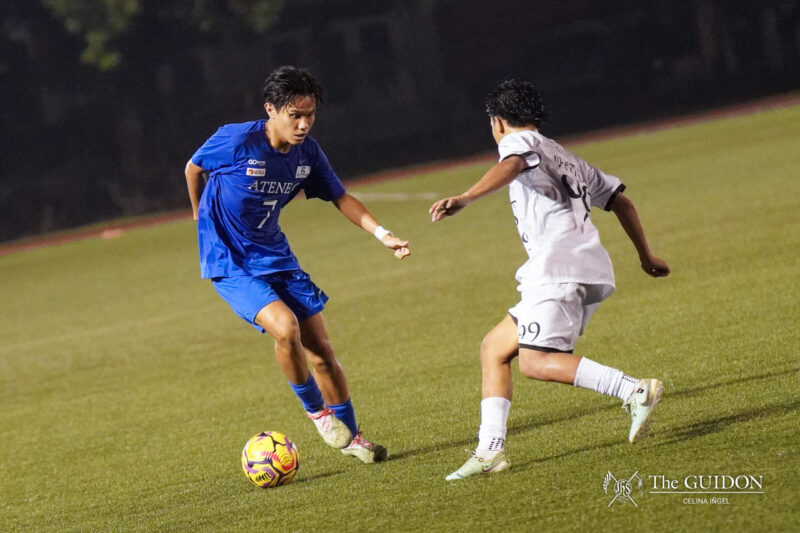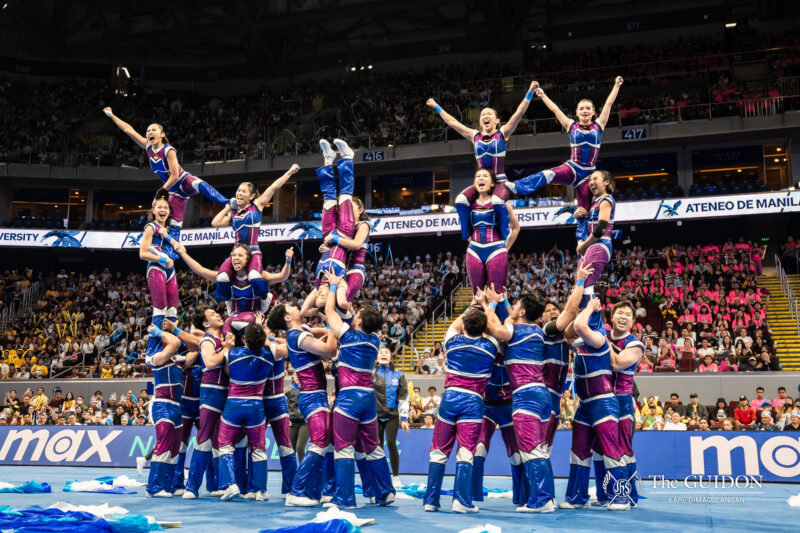In my high school freshman year in Ateneo de Zamboanga, a female batchmate was accused of being in a nude video leaked by male peers. The day it spread, upperclassmen flocked to the lobby, phones out, trying to find copies. Boys called her a “porn star” and taunted her. Everyone blamed her: She was a tease, uncontrollable, or simply naive. She was expelled, but the boys who spread the material went unscathed.
That was in 2008. Considering this 10 years later, what the school did to her—what we did to her—was wrong.
I thought Ateneo de Manila would be different. It has a loose dress code, a good count of female student leaders and scholars, and it has accepted pregnant and trans students, all while staying a reputable Catholic institution.
We’d like to believe Ateneo is exempt from the uptight nonsense more conservative schools impose on their female students, but we still have a long way to go.
Last year, a female student from Ateneo Senior High School (SHS) revealed on Twitter the harassment she experienced: fake nudes, butt-slapping, a near-spiked drink. The exposé prompted a promise of investigation from the administration, but apart from a statement saying the school took such allegations seriously, there was no assurance the boys were held to account.
The student alleged she was faulted instead; she was asked to delete supposedly provocative photos and was told it would not have happened to other girls. If true, the faculty member who said so was wrong: This happens to other girls in Ateneo all the time.
I should know. Once in a car after a party in college, an orgmate tried sticking his hand up my dress, even after I pushed it away. A mutual friend was driving and did not notice, and I was too afraid to speak up.
Another time, in another car, another boy pressed himself tightly against me. Because he would not stop nagging me, because he took me home from school, and because I knew he would not let me out until I did, I let him kiss me. The sooner it was over, the better. Again, I was afraid.
I almost forgot these instances entirely, but the #MeToo movement forced them out of the closet. Finally there was a name for the extreme discomfort I felt: Harassment.
I never thought I could be a victim. I was always so loud when injustice happened to other people, but now that it happened to me, how could I second-guess myself? I chalked it up to me sending the wrong signals or staying quiet, even though I clearly said no on both occasions. The global awakening to how wrong this culture was made me realize I was not alone. Guilt is truly the worst thing harassment leaves.
Both times, my perpetrators came from a similar background as me: A supposedly liberal basic education under the Jesuits. This is not to conclude Ateneo encourages this behavior, but it has not yet done enough to correct it.
I once went on a date with someone who disagreed with co-education in Ateneo SHS. Waxing nostalgia, he argued boys would never act the same around girls. Maybe it was because they would be forced to zip up? I knew immediately dating him would not work out. How could I keep seeing someone who didn’t think girls had a right to quality Catholic education?
It is high time for Ateneo to confront its own dark shadow: Uncorrected misogyny from over a century of delayed co-education in formative years. Ateneo has to bid its all-boys club goodbye.
The transition from exclusive to co-educational isn’t easy, but sister schools in all provinces have taken the leap. Ateneo de Manila is far behind. Women faced rampant sexism in 1973, when the college first went co-ed; that might be corrected by an earlier shift.
Apart from there being no clear academic benefits to single sex schools, two researchers from the University of Melbourne argue that segregation can help create a false dichotomy. As early as kindergarten, interacting with girls can teach boys not to “other” them. Less so-called “men for others” could enter SHS or the tertiary level with self-entitlement and hyper-sexualized ideas of women.
If Ateneo is to truly become a model in Catholic education, it should junk the exclusive system altogether, and prioritize the safety of girls in this transition. Moreover, it should do this not with the motivation of raking in profit, but because it believes in empowering women, giving equal opportunity, and fostering a safe campus.
When it comes to correcting troublesome behavior, credit ought to be given to Ateneo’s gender sensitivity training initiatives, memos advising students on procedures for complaints, and updates on university actions. But while the administration may be well-meaning, efforts remain largely split among schools.
The silence that followed sexual harassment allegations was deafening, with not even a memo or a homily from the President to assure students that this behavior was intolerable. Such a statement could set the tone and direction for a coordinated effort to protect women across the university.
With women at the helm, Ateneo should also develop a coordinated, uniform policy that listens to victims and holds perpetrators accountable. Legislation falls short in recognizing peer-to-peer harassment, making it difficult to hold perpetrators liable in court; but they can be held liable in school and in the workplace. However, the policy must go beyond defining dynamics; it must do the tricky work of defining and differentiating sexual misconduct, harassment, and assault. It must also identify the range of violations and possible courses of action under each.
As the Loyola Schools drafts its own policy, the administration can begin to consider how it can work on implementing a coordinated university-wide plan for a safer campus.
Any policy should leave out provisions that penalize the victim, like how a 2006 document on the Anti-Sexual Harassment Policy for employees considers a false complaint a violation. The provision does not qualify what a false complaint is: What if the victim was assaulted, but the case dismissed because of minor details? What if the report was filed by a third party out of concern? Such provisions might discourage complaints in the first place. Besides, it is difficult to pin a complaint as false if the definition of misconduct is not clear.
Ateneo needs to systematize sex education that talks about what is and isn’t consent. It should equip students with the vocabulary to discuss the issue and, if necessary, raise a complaint. A university-wide help desk monitoring grade school to grad schools can be set up; it can step in when issues cannot be solved at the level of deans and principals.
Ateneo also has to take a stand on policies that potentially hurt girls more than boys, such as dress codes and policing girls’ photos on social media. Its status as a prestigious university can set a template for how other Catholic schools treat their female students. Our long term vision should be a future where girls get to study and graduate despite photos in swimsuits, unplanned pregnancies (from both consensual encounters and rape), or nude videos, proven or not.
The University can’t save girls who graduated with these experiences, but it can still intervene to protect younger students from experiencing the same things.
I am reminded of a Gospel from John: When faced with an adulteress, the crowd has an impulse to not only condemn her, but kill her. There is no mention of the man who did the cheating. What is today’s puritanism, but a new world version of the old crowd’s impulse to kill the woman? Jesus Himself didn’t slutshame. Ateneo has to stop its students and faculty from casting the first stone.
Regine D. Cabato (AB COM ‘16) is a multi-platform writer for CNN Philippines. She was a Beyond Loyola staffer in S.Y. 2015-2016.
What do you think about this story? Send your comments and suggestions here: tgdn.co/2ZqqodZ




